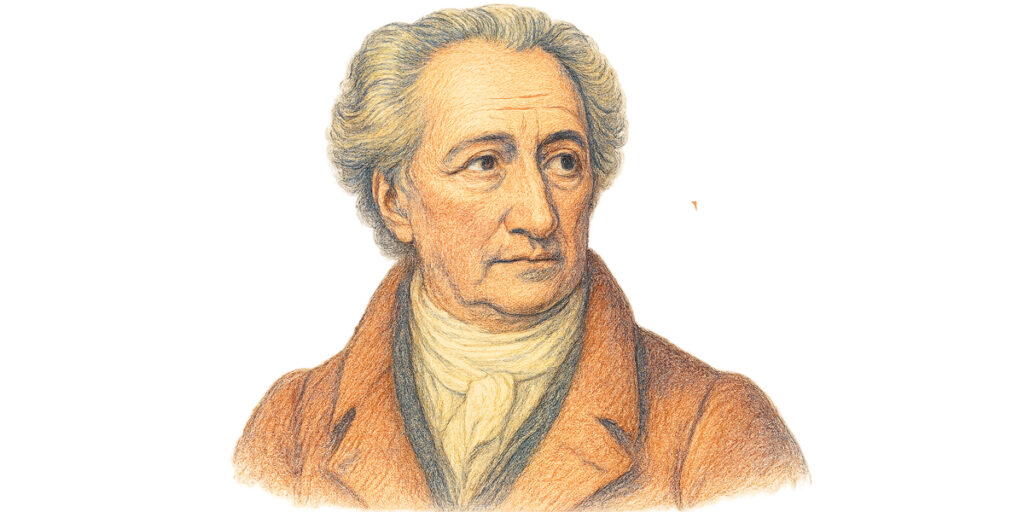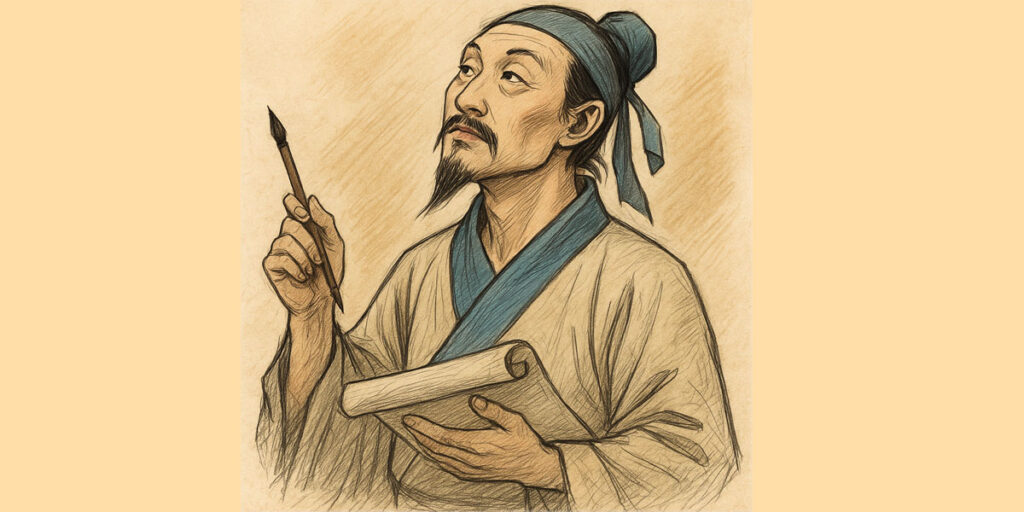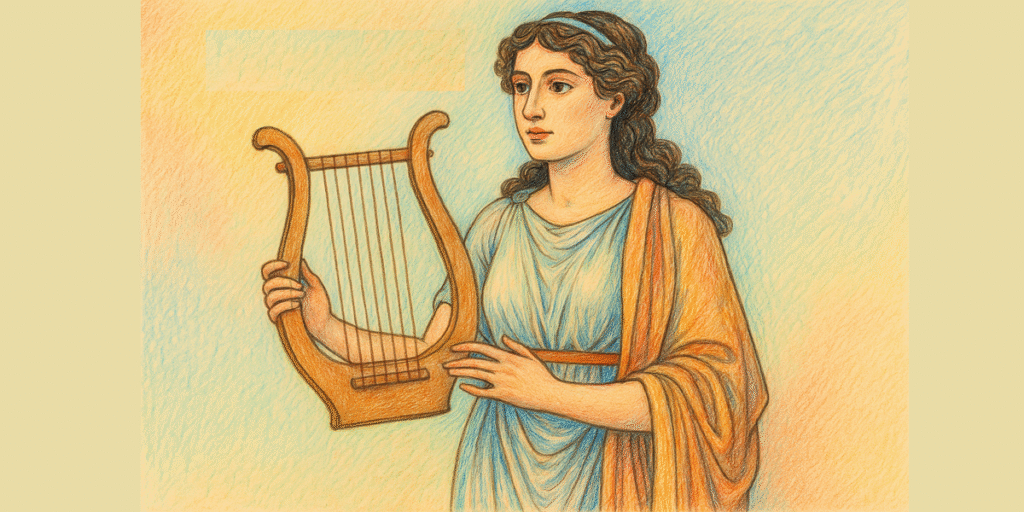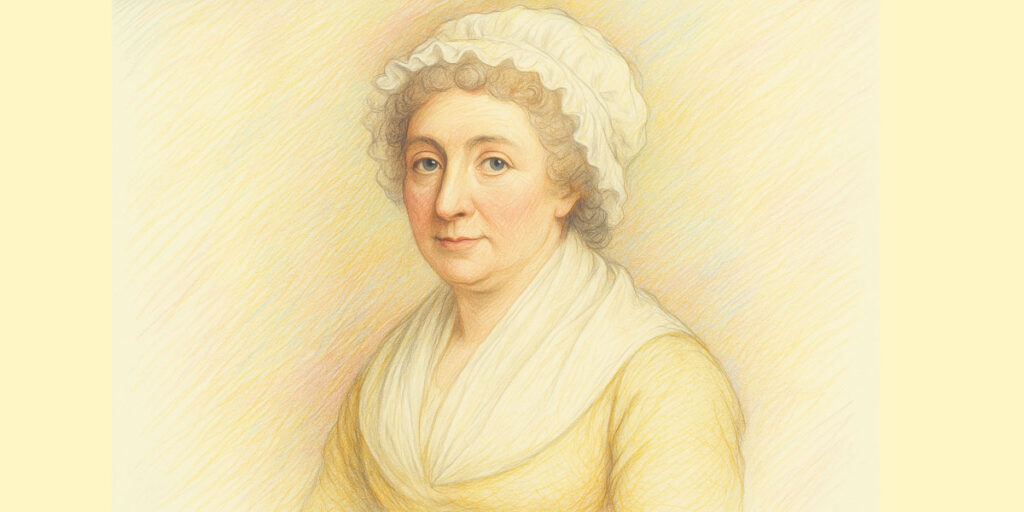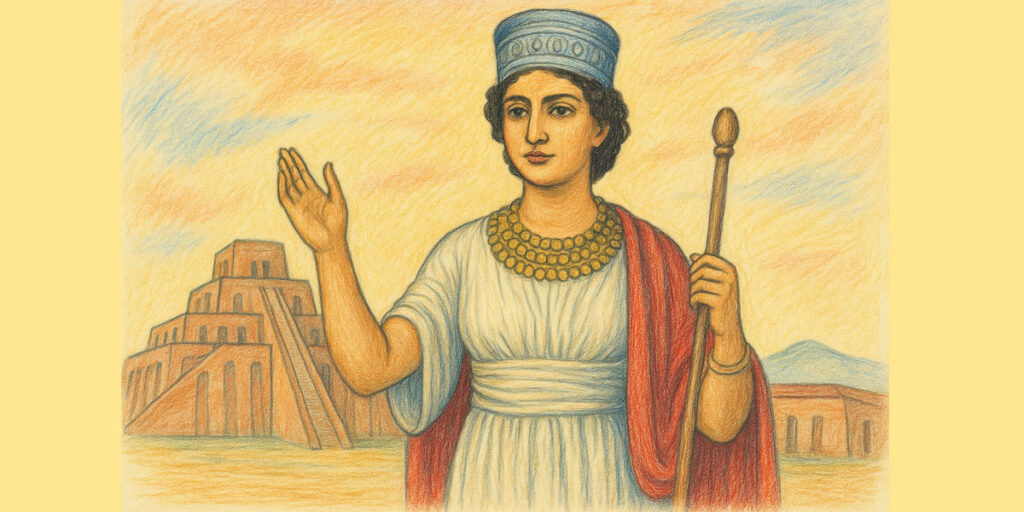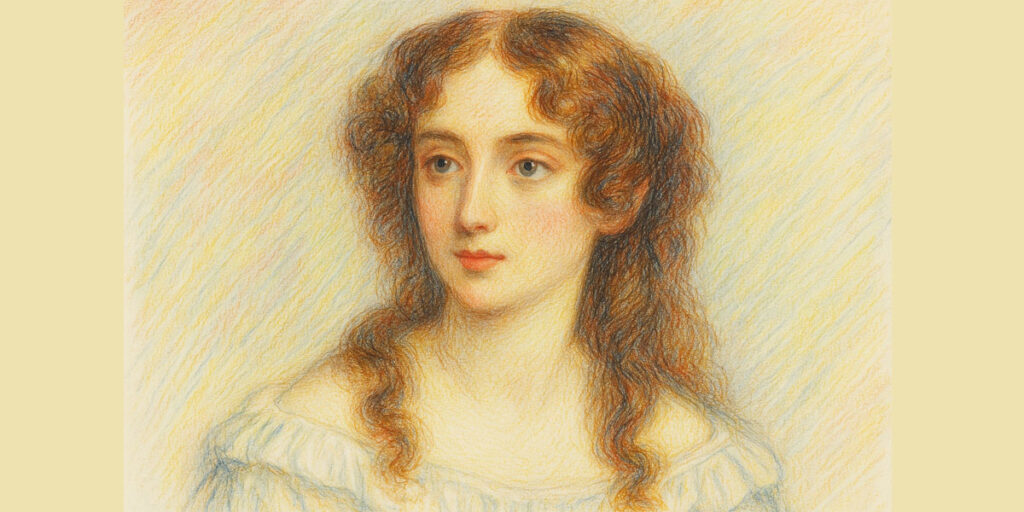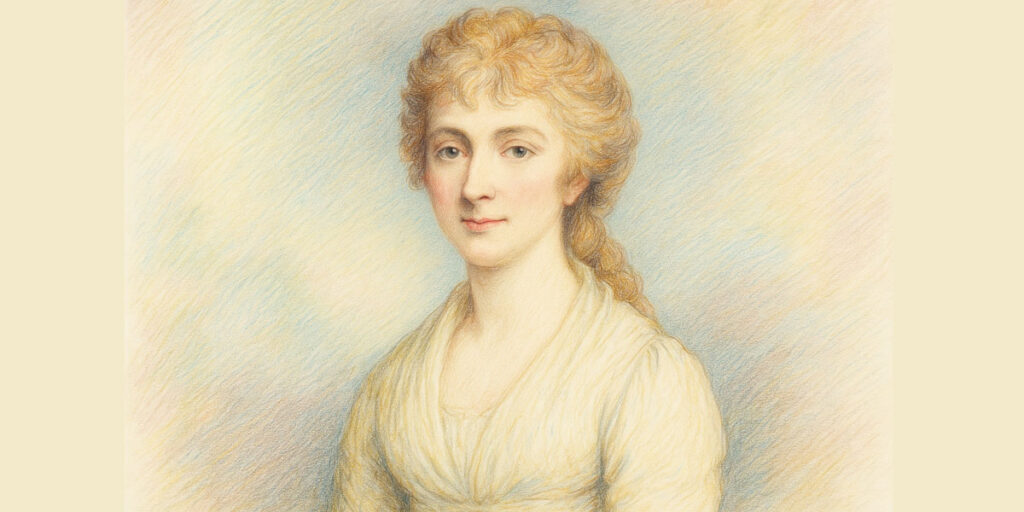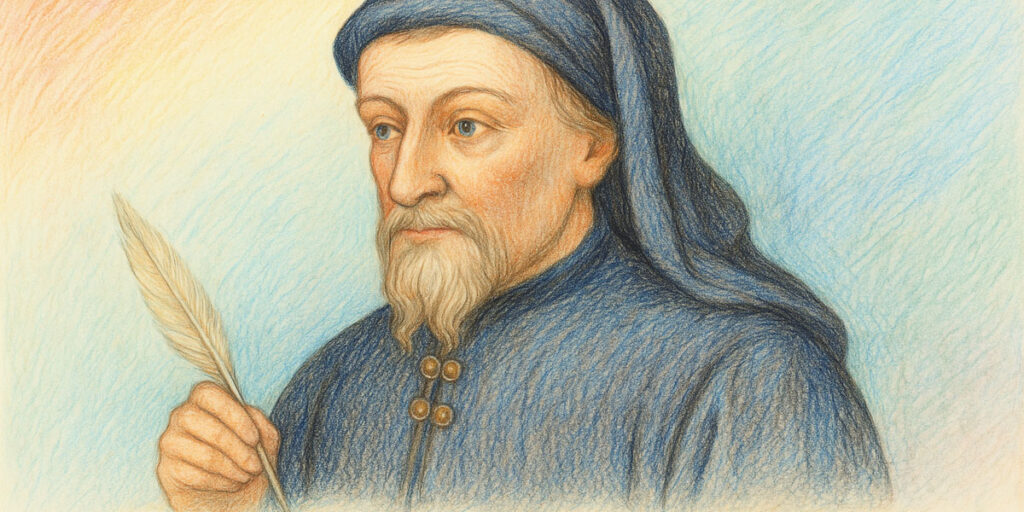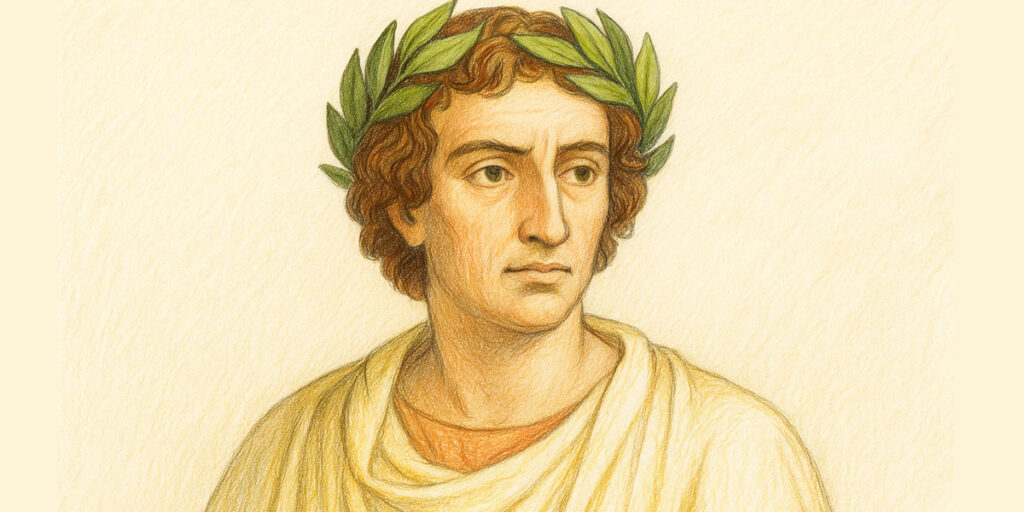Johann Wolfgang von Goethe (1749–1832) was a German poet, novelist, playwright, philosopher, and scientist—one of the most brilliant minds Europe ever produced. Born in Frankfurt into a well-to-do family, he showed early genius in literature and language. He became a literary superstar at just 25 with The Sorrows of Young Werther, a novel that shook Europe with its emotional depth. Over the next decades, Goethe helped lead the German cultural renaissance, penning masterpieces like Faust, Wilhelm Meister’s Apprenticeship, and Iphigenia in Tauris, while also serving as a statesman in Weimar.
He traveled through Italy, studied botany, wrote about color theory, and pondered the soul. Goethe lived many lives in one—romantic and rationalist, mystic and scientist, dreamer and reformer. His long life was a journey of self-discovery, artistic revolution, and timeless truth. He died in Weimar at age 82, having whispered, “Mehr Licht!” (“More light!”)—a perfect ending for a man who spent his life illuminating the human spirit.
✨ Johann Wolfgang von Goethe: The Infinite Flame of Genius
Long before hashtags and Hollywood, before Freud cracked the psyche and before Nietzsche questioned God, there was a man who explored the depths of emotion, ambition, beauty, and being—armed with nothing but ink and fire.
That man was Johann Wolfgang von Goethe, born in 1749 in Frankfurt, Germany. A Renaissance soul living in a revolutionary age. Poet, dramatist, philosopher, scientist, style icon of his century—Goethe wasn’t just a writer. He was a universe.
He was the original multidimensional genius, long before the term existed.
💌 The Book That Broke Europe’s Heart: The Sorrows of Young Werther
At just 25, Goethe dropped The Sorrows of Young Werther, a novel written like a collection of heartbreak-drenched letters. It was raw, poetic, and devastating—so much so that it sparked a fashion craze and a cultural phenomenon. Readers dressed like Werther. Some even copied his fate. It wasn’t just a book; it was an emotional earthquake.
Werther’s tale—unrequited love, a crushed soul, the unbearable weight of longing—channeled the energy of the Sturm und Drang (Storm and Stress) movement, and Goethe was crowned its young prince.
⚔️ The Rebel Knight and the Rise of a New Drama
A year before Werther, Goethe had already made noise with Götz von Berlichingen, a play about a defiant knight with an iron hand. It kicked the old rules of French theater to the curb and shouted, “This is how Germany tells stories now.”
Bold, rebellious, and rooted in national identity—it was the literary equivalent of punk rock.
🎭 From Myths to Mind Games: Goethe’s Plays Level Up
By the late 1780s, Goethe had transformed. After a life-altering trip to Italy, he came back glowing with Classical energy. He wrote Iphigenia in Tauris, a majestic reworking of Greek tragedy, filled with grace and moral clarity. Then came Egmont, a freedom fighter’s tale, soaked in revolutionary spirit—later turned into a powerful overture by Beethoven.
In Torquato Tasso, he cracked open the tortured heart of an artist trapped by court politics, laying bare the agony of genius in chains.
📚 The Life Novel: Wilhelm Meister’s Apprenticeship
Next came Wilhelm Meister, the first great Bildungsroman—a coming-of-age novel before coming-of-age was a thing. It’s the story of Wilhelm, a dreamer who walks away from business to chase art, truth, and identity. The book became the blueprint for generations of writers, from Tolstoy to Hesse to Joyce.
It wasn’t just a novel—it was an inner quest wrapped in prose.
🔥 The Masterpiece of a Lifetime: Faust (Parts One & Two)
If Goethe’s life were a constellation, Faust would be its blazing north star. He started it as a young man. He finished it near death. Sixty years in the making, it became the most ambitious drama in German history.
Part One is a tragic love story with philosophical thunder. Faust, a scholar thirsting for truth, sells his soul to Mephistopheles for knowledge and pleasure. He falls for Gretchen, and her life spirals into tragedy.
Part Two? Oh, it’s a cosmic opera. Faust travels through empires, classical myths, and spiritual awakenings. He dies striving—still seeking. And in the end, he’s saved. Not because he was good. But because he never stopped trying.
🌹 The Erotic, the Epic, and the Eastern: More Poetry, More Passion
Goethe’s words didn’t just live in novels and plays. They danced in verse. His Roman Elegies were bold, sensual, alive with flesh and marble. The Venetian Epigrams? Sharp, ironic, playful—a cocktail of poetry and critique.
He wrote the terrifying Erlking, a supernatural poem that makes your spine tingle, especially when set to Schubert’s chilling music. Prometheus is a thunderclap of defiance. Wanderer’s Nightsong is peace in a breath.
Then there’s West–Eastern Divan, where Goethe went full global visionary—merging German lyricism with Persian mysticism, inspired by the poet Hafez. This wasn’t cultural curiosity. It was a love letter to unity.
✈️ The Road to Italy and the Memoirs of a Soul
His Italian Journey reads like a creative reboot. Goethe soaked up the ruins of Rome, the sun of Naples, and the soul of Renaissance beauty. It redefined his art. Rebalanced his spirit.
Later, in Poetry and Truth, he penned the story of his youth—an autobiography, yes, but also a self-portrait of the artist as a becoming force. Memory meets myth in a mirror of the soul.
🧬 The Scientist-Poet
Yes, Goethe wore a lab coat—figuratively, anyway. He wrote The Metamorphosis of Plants, proposing that all plants shared a primal form. In anatomy, he discovered the intermaxillary bone in humans, a big deal in evolutionary theory. In Theory of Colours, he clapped back at Newton, arguing that perception, not just physics, defined color.
Goethe saw nature as alive, poetic, and deeply spiritual. He didn’t dissect it. He listened to it.
🧠 Aphorisms, Essays, and Unfinished Wonders
When he wasn’t creating galaxies of fiction, Goethe was dropping timeless truth bombs in Maxims and Reflections: “Knowing is not enough; we must apply. Willing is not enough; we must do.” Hundreds of these thoughts sparkle with wisdom.
He wrote the eerie and enigmatic The Green Snake and the Beautiful Lily, a philosophical fairy tale of transformation and hidden harmony. In The Man of Fifty Years, he explored love, regret, and what happens when passion reawakens in middle age.
He dabbled in mythology with his unfinished epic Achilleis. Dreamed up The Magic Flute, Part Two to spiritually continue Mozart’s masterpiece. Even his fragments feel like symphonies paused mid-flight.
🌌 The Final Verse and the Eternal Flame
In his twilight, Goethe wrote poems like Marienbad Elegy, a heartbreaking lament for a late-life love lost. It’s Werther’s voice again—older, wiser, still burning. Until the very end, he wrote. He reflected. He refined.
And then, in 1832, as the candle dimmed, he whispered, “Mehr Licht”—“More light.”
It wasn’t just a final breath. It was a mission statement. A legacy. A prophecy.
🚀 The Legacy Lives On
Goethe’s work launched modern German literature. But his reach is global. Nietzsche called him “a man of the highest order.” Freud read him. Beethoven composed for him. Einstein admired him. Borges adored him. Schopenhauer quoted him.
Faust, Werther, Wilhelm Meister, Iphigenia, Divan, Tasso, Italian Journey, Poetry and Truth, Elective Affinities, The Green Snake—his works still shine with relevance, vision, and soul.
He wasn’t just a writer. He was a movement. A century. A galaxy compressed into one man.
💘 Goethe & Love: The Women Who Inspired the Words
Behind the poetic genius was a man whose heart pulsed wildly with longing, affection, and heartbreak. Goethe fell in love many times, and each love—real or imagined—birthed masterpieces. His early muse, Lotte Buff, became the model for Charlotte in Werther. Later came Friederike Brion, the village pastor’s daughter, whose sweet spirit haunted his lyrics for years. But it was his late-in-life passion for Ulrike von Levetzow, a girl more than fifty years his junior, that produced one of his most moving and mature works: Marienbad Elegy. Goethe wasn’t afraid to feel deeply—even when it hurt. His romances weren’t just affairs of the heart; they were sparks for literary alchemy.
🧠 Goethe vs. Schiller: Rivals Turned Soul Brothers
At first, they were polar opposites. Friedrich Schiller, the revolutionary playwright full of fire and fury; Goethe, the calm statesman and artistic classicist. But in one of literature’s most famous turnarounds, they became best friends, creative collaborators, and twin stars of Weimar Classicism. They debated philosophy, exchanged poetic drafts, and raised each other’s game like lyrical gladiators. Without Schiller, Goethe might never have completed Faust. Without Goethe, Schiller’s idealism might never have taken such vivid form. Their friendship was a fusion of intellect and inspiration—a literary bromance for the ages.
🧳 Goethe the Traveler: From the Alps to the Colosseum
In 1786, Goethe vanished from Weimar. He didn’t tell anyone where he was going. With only a cloak, notebook, and insatiable curiosity, he crossed the Alps and arrived in Italy. This wasn’t just tourism—it was transformation. In Italian Journey, he wrote about volcanoes, sculptures, Roman ruins, and golden sunsets. He walked where Virgil walked. Touched what Michelangelo touched. Italy became his spiritual reboot—a rediscovery of beauty, proportion, and the timeless rhythm of nature. He left Germany a Romantic. He returned a Classicist, with marble in his veins.
🕯️ Goethe the Philosopher: A Mind Between Two Worlds
He wasn’t a philosopher in the academic sense, but Goethe’s work glows with philosophical depth. He saw life as a dialogue between opposites: reason and feeling, freedom and fate, nature and art. He believed in the daimonic—a mysterious force within each of us that shapes destiny. He embraced Spinoza’s pantheism, seeing God in nature, in the bloom of a flower, the swirl of a storm, the breath of a lover. His worldview? Not rigid. Not dogmatic. But ever evolving, ever open, like a leaf unfolding toward the sun.🎨 Goethe and the Arts: Poetry with a Painter’s Eye
Goethe didn’t just write—he saw. He understood color, line, and form like a painter does. He spent hours in galleries, studied architecture, and even dabbled in sketching. His Theory of Colours wasn’t just a science book—it was a poetic manifesto on how we see the world. He found mood in shade, soul in pigment. Even his poems were visual—every scene painted with precision, from moonlit meadows to fevered visions of Mephistopheles. Goethe made language glow like brushstrokes on canvas.
📣 Goethe in the 21st Century: The Original Influencer
He may have died in 1832, but Goethe is still trending. His themes—existential crisis, emotional authenticity, the quest for meaning—speak to a digital generation burned out by artificial perfection. Werther is emo before emo. Faust is the ultimate hustle culture critique. Elective Affinities is the precursor to every toxic relationship thread. His life? A model of curiosity, reinvention, and bold creative expression. In a world that praises multi-hyphenates, Goethe was the OG polymath. Philosopher-poet-dramatist-scientist-public intellectual. And he did it all without Wi-Fi.
📜 Goethe’s Global Footprint: From Tokyo to Buenos Aires
His works have been translated into every major language. Faust has been adapted into films, operas, ballets, and manga. Werther is required reading in France. In Iran, West–Eastern Divan is taught in universities. In India, Tagore admired his universalism. Even in Latin America, Goethe’s influence shaped political thinkers and literary rebels. His dream of Weltliteratur—a world literature that transcends borders—is now reality. He didn’t just belong to Germany. He belongs to humanity.
📚 Goethe’s Unfinished Dreams: What He Didn’t Live to Finish
Though he lived to 82, Goethe died with ink still wet on his desk. He left fragments of plays, poetic drafts, half-formed stories. The Magic Flute Part Two shimmered with spiritual ambition but was never completed. His Achilleis, an epic inspired by Homer, ended mid-scene. In these unfinished works, we glimpse a mind still reaching—still striving toward something more. Even in silence, he was speaking.
🏆 Goethe’s Eternal Message: Strive On. Dream Big. Feel Deeply.
In the end, Goethe gave the world more than books. He gave us a philosophy of living. Strive—like Faust. Feel—like Werther. Reflect—like Wilhelm. Love beauty. Respect nature. Seek light. And above all, never settle. Because to be alive, truly alive, is to keep reaching—even when the stars feel far away.
So if you’re ever lost, torn between head and heart, trying to find the shape of your soul—open a page of Goethe. He’s not in the past. He’s in you.
🔮 Goethe & the Occult: Magic, Alchemy, and Mystical Symbols
He was a scientist and a rational thinker—but Goethe was also drawn to the mystical. Faust isn’t just a story of knowledge and temptation; it’s a coded dance with alchemy, hermeticism, and the occult traditions of medieval Europe. He was fascinated by secret societies, dream symbols, ancient myths, and the mysterious forces of the unconscious. In letters, he hinted at spiritual experiences and metaphysical visions. His universe was layered—logic on the surface, magic underneath. For Goethe, the mystical wasn’t superstition—it was symbolic truth, cloaked in metaphor, waiting to be unlocked by those who dared to look deeper.
👑 Goethe in Weimar: The Poet as Power Player
Not many poets can say they helped run a country—but Goethe did. In 1775, he was invited to the court of Duke Karl August in Weimar and stayed for over 50 years. He wasn’t just a cultural mascot—he was a minister of state, overseeing roads, mining, education, and even the military. Yet he also reimagined Weimar into a cultural capital, transforming its theatre, arts, and intellectual scene. The city became a sanctuary for thinkers like Schiller, Herder, and later Nietzsche. Goethe ruled not with swords, but with sentences—quietly building a golden age of German culture.
🎬 Goethe Goes Pop: Film, TV, and Literary Fame Today
Goethe isn’t just for scholars and dusty libraries—he’s also made his way onto the screen. Faust has been adapted into everything from black-and-white German Expressionist cinema (like Murnau’s eerie 1926 classic) to modern psychological thrillers. His life and loves have inspired biopics, stage musicals, even anime interpretations. His words echo in theatre halls, Instagram quotes, TED talks, and graduation speeches. In an age of storytelling overload, Goethe still gets the spotlight. Timeless isn’t a compliment—it’s a fact.
📖 Goethe’s Reading List: What He Loved to Read
He didn’t just write masterpieces—he devoured them. Goethe loved Homer, Shakespeare, and the Bible, and he read them not once, but obsessively. He quoted Ovid and Plato like friends. He admired Persian poetry, especially Hafez. He read Chinese philosophy with fascination. He even explored Indian texts like the Bhagavad Gita, calling it “sublime.” His personal library contained over 7,000 books. For Goethe, every page turned was a path toward inner evolution.
🖼️ Goethe the Curator: Shaping Germany’s Artistic Soul
Goethe didn’t just write about art—he shaped taste itself. He was one of the first to argue that art needed to be understood not just emotionally, but historically and culturally. As an art critic, he wrote essays about architecture, painting, sculpture, and aesthetics. He loved the harmony of classical proportions and criticized over-decoration. He helped catalog art collections and advised museums. He had a curator’s eye and a poet’s heart. If you’ve ever stood in a gallery and felt something timeless staring back at you—that’s Goethe whispering behind the frame.
🗣️ Goethe the Speaker: The Man Behind the Voice
To hear Goethe speak was, by many accounts, unforgettable. Guests in Weimar described his conversation as electric—measured, radiant, and profound. He was charming without trying, passionate without ranting. He spoke with the calm confidence of someone who had seen the whole map of life. In salons, he didn’t just entertain—he elevated. People left his company feeling larger, brighter, more alive. He wasn’t loud. He didn’t dominate. He simply resonated.
⚖️ Goethe’s Moral Compass: Duty, Desire, and Dignity
He never claimed to be a saint. He wrestled with temptation, ego, power, and guilt. But Goethe believed deeply in balance—in living with dignity. He admired restraint, civility, and self-mastery. In a world swinging between excess and repression, he aimed for harmony. Whether writing about love triangles, political upheaval, or cosmic bargains, his stories often circled back to this question: What does it mean to live well—not just freely, but rightly?
🌍 Goethe the Eco-Pioneer: The First Green Romantic?
Way before climate consciousness became a movement, Goethe was writing poems about trees, riverbanks, and the breathing spirit of the Earth. His nature writings weren’t just observations—they were love letters. He saw nature not as a machine, but as a living web of energy, beauty, and mystery. Today, eco-philosophers cite him as an early voice in environmental thought. His vision? That humans are not rulers of nature, but threads in its divine fabric.
🥀 Goethe and Mortality: The Poet Who Embraced the End
Goethe was never afraid of death. He mourned. He reflected. He watched lovers die, friends vanish, and ideals fade. But he saw death as a transformation, not a full stop. In Faust, in Werther, and in his own elegies, death becomes a doorway to truth, to stillness, to the eternal. Even his final whisper—“More light!”—wasn’t fear. It was a request for clarity. Illumination. A signal that the journey never really ends.
💡 Goethe and Innovation: The Mind That Predicted the Future
Long before the word “innovation” became a buzzword, Goethe was inventing new ways to think, write, and perceive the world. He believed in the unity of all things—art, science, language, and spirit. His concept of the “Urpflanze”, or primal plant, imagined a single archetype that all plant forms evolve from—a theory that foreshadowed Darwin’s ideas. His dream of Weltliteratur—a global, borderless literature—predicted the digital age of open, international storytelling. Goethe didn’t just write history. He foresaw it.
🎓 Goethe the Mentor: A One-Man University of the Soul
Goethe didn’t teach in classrooms, but every conversation with him felt like a masterclass. He mentored younger thinkers like Johann Peter Eckermann, whose Conversations with Goethe is a literary treasure chest of insight and warmth. Through letters, tea talks, and late-night musings, he passed wisdom down not through lectures, but through living dialogue. He treated every human like a work-in-progress—and every soul like a seed that could bloom.
🪞 Goethe’s Inner World: Dreams, Shadows, and Self-Inquiry
He once said, “He who knows himself and others will also recognize: East and West are one.” Goethe’s inner world was full of contrasts: light and dark, joy and melancholy, power and vulnerability. His characters are often torn between multiple desires—because so was he. He believed in the daimonic—an invisible force that guides us toward our true purpose, often through trial and chaos. He knew that the soul is layered and that our truest growth happens not in peace, but in friction.
💼 Goethe the Workaholic: Obsession as a Superpower
Yes, he was poetic and philosophical—but make no mistake, Goethe worked relentlessly. He wrote from morning until midnight. He edited for decades. He ran theaters, managed court affairs, read thousands of pages a year, and somehow still found time to study geology, color theory, and botany. He believed talent was nothing without tenacity. His advice to creators? “Do not hurry. Do not rest.” He turned discipline into an art form—and his legacy into a monument.
🕰️ Goethe and Time: Memory, Mortality, and the Long View
Time was one of Goethe’s most sacred themes. He studied history not just as a scholar but as a seer. His plays span centuries. His novels reflect eras in transition. His poems freeze moments and expand them into meaning. In Poetry and Truth, he wrote that time doesn’t just pass—it reveals. He believed we live many lives inside one, and that age isn’t decay—it’s refinement. To Goethe, every second was a note in a greater symphony.
🧩 Goethe and Identity: Gender, Expression, and Emotional Freedom
Though a man of his time, Goethe often pushed past societal norms. In Faust, Tasso, and Wilhelm Meister, characters explore love, transformation, disguise, and gender identity in nuanced ways. He celebrated feeling. He honored vulnerability. In letters and poems, he expressed admiration for beauty in all its forms, regardless of gender. He wasn’t a rebel by flag-waving—but by empathy. In a world that demanded stiffness, Goethe gave us softness with strength.
🔗 Goethe and Connection: From One Human to Another
What made Goethe timeless wasn’t just his brilliance. It was his humanity. He wrote for the heart as much as for the mind. He saw every person—whether prince or peasant, lover or loner—as a mirror of something universal. That’s why his works resonate across cultures, languages, and centuries. He wasn’t trying to be a god. He was trying to be true. And that truth—the struggle to grow, to love, to find meaning—is why we still read him today.
💥 Goethe and Crisis: Creating in Times of Collapse
Goethe lived through wars, revolutions, famines, and plagues. He saw the French Revolution up close. He witnessed Weimar’s political breakdowns. He saw Europe shaken to its core. Yet in chaos, he didn’t retreat—he created. Faust was written through political upheaval. Elective Affinities was written during spiritual unrest. For Goethe, crisis wasn’t the end. It was the beginning of art, of truth, of reinvention. He taught us that the pen is not an escape—it’s a response.
🛸 Goethe and the Unknown: Eternity, the Soul, and the Cosmic Quest
Toward the end of his life, Goethe became more mystical. He pondered reincarnation, the eternal soul, and what lies beyond death. In Faust Part Two, he sends his hero into a metaphysical realm beyond time and space. In poems like The Soul of the World, he speaks of invisible forces that shape the stars and hearts alike. He believed that behind science, behind poetry, behind even love—there was a deeper order, one we could sense but never fully grasp.
